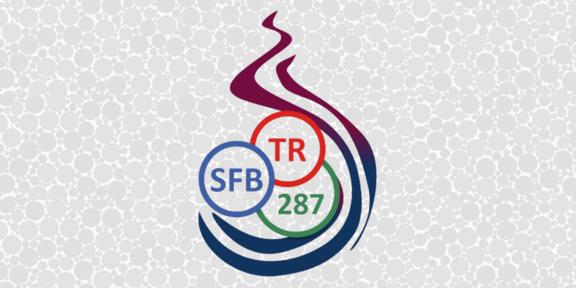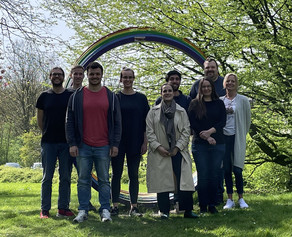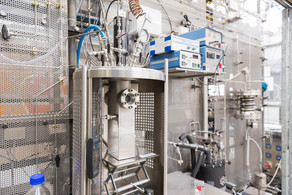CRC/TRR 287 BULK-REACTION: Prof. Alba Diéguez Alonso and M.Sc. Fabienne Ryll join the second funding peroid

We are happy to announce that the Laboratory of Transport Processes join the Project B4 in the second funding peroid of the CRC/TRR 287 BULK-REACTION with Prof. Dr.-Ing. Alba Diéguez Alonso as a project leader and M. Sc. Fabienne Ryll as a doctoral researcher.
The CRC/TRR 287 BULK-REACTION project studies the interaction of physical and chemical processes in gas-permeable, moving, reactive particle beds, driven by gravity or mechanical forces. These systems are essential for processes in energy, chemical, pharmaceutical, and food industries, supporting the production of granular materials and energy supply.
By integrating reactive flow mechanics and particle technology through a multiscale approach, BULK-REACTION links microscopic particle processes to full-scale industrial systems. Using advanced simulations and measurements, the aim is to analyze, understand, and predictively control reactive bulk material processes.
Key goals include developing advanced measurement techniques, providing experimental data to validate models, creating multiscale process descriptions, and building an open-source DEM tool for simulating reactive bulk materials. The project promises breakthroughs in energy efficiency, product quality, and CO2 reduction, supported by interdisciplinary collaboration between Ruhr-University Bochum, Otto-von-Guericke-University Magdeburg, Technical University Dortmund and Christian-Albrechts-University Kiel.
The CRC/TRR is funded by the Deutsche Forschungsgemeinschaft (DFG, German Research Foundation) – TRR 287 – 422037413.
Project B4 with the name "Adaptive Pore-Network Models and Experiments for Thermochemical Processes in Porous Single Particles" is a collaboration between the Otto-von-Guericke-University Magdeburg and the Technical University Dortmund. It extends a pore-network model to include pyrolysis and biomass coking, incorporating heating methods like microwave heating, gas transport, particle swelling, shrinkage, and anisotropic porous structures.
The experimental part, conducted in Dortmund, focuses on in-situ investigations using optical diagnostics to measure surface temperatures and gas concentrations around a biomass particle in a novel single-particle reactor. These experimental results support the refinement of reduced single-particle models developed in collaboration with Magdeburg.






